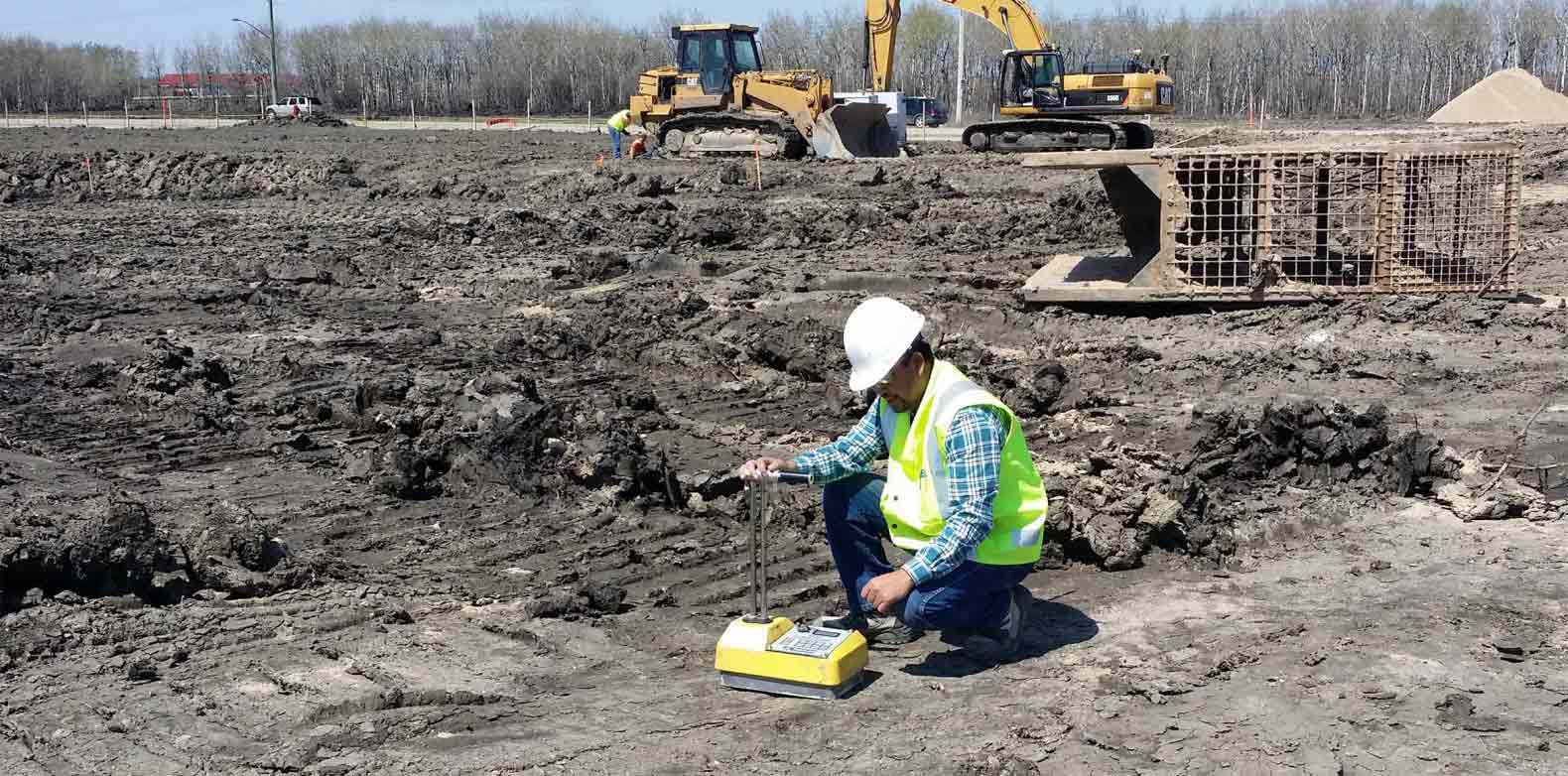Tailings Engineer: Important Expertise for Lasting Waste Administration in Mining
Tailings Engineer: Important Expertise for Lasting Waste Administration in Mining
Blog Article
Recognizing the Important Duty of the Geotechnical Market in Modern Building Projects and Framework Advancement
The geotechnical industry is a foundation of contemporary building and infrastructure advancement, offering important insights into soil behavior that directly affect project end results. With innovative soil evaluations and ingenious engineering services, geotechnical professionals not just ensure structural integrity but also address sustainability worries amid advancing environmental criteria.
Relevance of Soil Evaluation
Soil evaluation plays a crucial duty in the geotechnical market, working as the structure for educated decision-making in building and construction jobs. Precise soil assessment is necessary for determining the viability of a website for different kinds of structures, consisting of residential homes, industrial structures, and bridges. By assessing soil structure, density, dampness, and strength material, designers can expect possible obstacles and minimize threats connected with ground instability, erosion, and settlement.
The assessment process commonly includes a collection of tests and observations that offer essential information concerning the subsurface conditions. This data educates the style and building processes, ensuring that frameworks are developed on solid ground with sufficient assistance. Recognizing the soil profile enables engineers to pick ideal building techniques and materials, enhancing resource usage and minimizing prices.
Along with guaranteeing structural stability, dirt assessment adds to ecological sustainability. By identifying possible contamination or unfavorable effects on surrounding environments, designers can apply approaches to safeguard these natural deposits. Overall, extensive dirt evaluation is vital in the geotechnical area, underpinning the security, effectiveness, and environmental obligation of building jobs.
Key Geotechnical Strategies
A range of essential geotechnical methods are employed to analyze and improve the stability and efficiency of construction websites. One fundamental technique is soil sampling and screening, which permits engineers to identify the physical and chemical properties of the ground. This information is important for making educated choices relating to structure style and building approaches.
An additional important technique is website characterization, which entails the comprehensive evaluation of soil and rock conditions with methods such as borehole exploration and in-situ testing. Methods like Criterion Penetration Examinations (SPT) and Cone Infiltration Examinations (CPT) offer beneficial information on dirt toughness and stratigraphy.
Ground improvement strategies, such as soil stabilization and grouting, are likewise vital in enhancing the load-bearing capability of weak soils. These approaches can alleviate negotiation and boost total website problems.
Furthermore, incline security evaluation is important for recognizing possible landslide threats and making certain the safety and security of excavations. This evaluation usually uses numerical modeling and limitation stability approaches to predict dirt behavior under different conditions.
Incorporating these geotechnical methods right into building and construction preparation not just maximizes project results however additionally makes certain the long-term sustainability of facilities development.
Influence On Building Security

Additionally, efficient geotechnical engineering includes applying reduction techniques for identified risks. This might consist of soil stabilization techniques, preserving frameworks, or water drainage systems to alleviate hydrostatic stress. By dealing with these variables, building and construction teams can minimize the probability of crashes and boost employee safety.
In addition, continual monitoring of site conditions is critical throughout construction. Geotechnical tools can provide real-time information relating to ground activity and security, enabling timely treatments when necessary.
Basically, the geotechnical sector plays a pivotal duty in guarding building and construction jobs. By focusing on ground stability and utilizing extensive evaluation methods, the geotechnical sector not just protects the labor force but additionally adds to the longevity and integrity of built infrastructure.
Sustainability in Geotechnical Practices

In addition, geotechnical engineers are currently utilizing advanced technologies, such as geosynthetics, which boost dirt security while decreasing the volume of material required. This not just conserves resources but likewise brings about much less waste generation (geo tech engineer). The assimilation of lasting layout concepts into geotechnical engineering urges the usage of renewable resource resources in building and construction procedures, further lowering carbon emissions
By performing these assessments, geotechnical experts can create approaches that minimize negative effects, making certain conformity with environmental policies. In general, the focus on sustainability within geotechnical methods not only contributes to the long life and resilience of framework but likewise promotes an accountable technique to land and resource administration.
Future Trends in Geotechnical Design
Technology is driving the future of geotechnical design, as arising innovations and methodologies reshape the market. The combination of innovative information analytics and expert system is established to change site examination and danger analysis, enabling engineers to make even more enlightened decisions based on real-time information. Furthermore, the use of geosynthetic products is gaining grip, offering sustainable services that improve dirt stability and lower environmental impact.
Another significant fad is the adoption of automated and robotic systems for monitoring and construction procedures. These technologies not just boost precision however also improve security by decreasing human participation in unsafe settings. Additionally, the application of Building Info Modeling (BIM) in geotechnical style facilitates enhanced partnership amongst stakeholders, maximizing job distribution and lowering costs.
As environment adjustment presents new difficulties, the sector is progressively concentrating on resilience and flexibility in layout techniques, guaranteeing facilities can withstand extreme weather occasions. Finally, the recurring pattern toward sustainability will drive technology in green materials and techniques, straightening geotechnical design with broader environmental objectives. Jointly, these fads will certainly shape a much more efficient, sustainable, and durable geotechnical landscape for future jobs.
Verdict

The geotechnical industry is a keystone of contemporary building and construction and facilities growth, giving important understandings right into soil actions that directly influence job outcomes. geo tech engineer.Dirt assessment plays a vital duty in the geotechnical industry, serving as the foundation for notified decision-making in building projects. Generally, thorough soil analysis is essential in the geotechnical area, underpinning i thought about this the security, effectiveness, and environmental responsibility of building tasks
Construction security is considerably affected by geotechnical methods, as the security and honesty of the ground directly impact the overall safety of a building site.In conclusion, the geotechnical market is important in modern-day building and construction and facilities development, supplying critical evaluations that ensure architectural honesty and safety.
Report this page